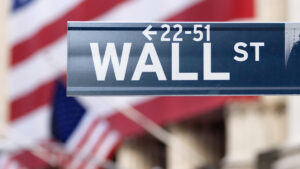Could BNPL companies lose half their customers after the RBA surcharge ruling?

Picture:Getty Images.
Australians may soon be slugged with fees for using buy-now-pay-later (BNPL) services offered by companies like Afterpay (ASX:APT) and Zip Co (ASX:Z1P).
In a blow to the burgeoning BNPL sector, the Reserve Bank of Australia (RBA) announced on Friday that the no-surcharge rule should also apply to BNPL providers, bringing it in line with existing credit card rules.
The no-surcharge rule is one of the reasons BNPL companies have been able to flourish, as it prohibits merchants from passing surcharges (merchant fees) on to consumers.
“The RBA Board has concluded that it would be in the public interest for BNPL providers to remove their no-surcharge rules, consistent with the Board’s longstanding position on such rules,” a statement released by the central bank’s payments board read.
The RBA acknowledged that BNPL is used by a significant number of Australian consumers, particularly for online purchases.
And although services offered by BNPL companies are “significantly more expensive” for merchants compared to credit cards, they have “become an essential payment offering” for many retailers, the statement said.
Currently credit card companies in Australia charge merchants between 0.5% to 0.9% on each transaction, most of which are passed on to consumers.
BNPL providers on the other hand, charge anywhere between 3% to 6%, all of which are absorbed by the merchants due to the no-surcharge rule.
For an average Afterpay basket size of $150 for example, customers could now expect to pay an additional $6 to $9 on surcharges.
Zip charges merchants 5% plus 30c, so the impact to customers in using Zip services would be quite similar.
Customers could leave BNPL in droves: surveys
Afterpay and Zip have a combined customer base of 5 million in Australia and New Zealand, and around 100,000 merchants.
A survey conducted by the RBA before COVID-19 found that half of BNPL users would use alternative payment methods if they had to pay a surcharge, while 10% said they would cancel the transaction and 40% said they would still keep using it.
Another survey conducted by UBS in 2020 indicated that 67% of Afterpay users would not use it if charged a 4% fee, and only 12% said they would still use it (21% were unsure).
UBS says the no-surcharge rules have created a distortion that has “significantly influenced consumers’ choice of payment method, and inhibit competitive neutrality.”
The bank is also concerned the recommendations put forward by the RBA could be adopted by overseas regulators.
“We see this as a materially negative development for Afterpay in particular, given its reliance on high merchant fees to fund its economics, and incrementally negative for Zip though Zip is more reliant on consumer fees to fund its economics,” the UBS research note says.
“In our view, we see a strong risk that overseas regulators could impose similar restrictions on BNPL. We also see this development as increasing completion risk for Square’s proposed acquisition of Afterpay,” the UBS note concluded.
Any rule change will be need to be legislated, but other ASX-listed BNPL stocks that could potentially be impacted by the new rule are Humm (ASX:HUM), Openpay (ASX:OPY), and IouPay (ASX:IOU).
Share prices today:
Related Topics
UNLOCK INSIGHTS
Discover the untold stories of emerging ASX stocks.
Daily news and expert analysis, it's free to subscribe.
By proceeding, you confirm you understand that we handle personal information in accordance with our Privacy Policy.








